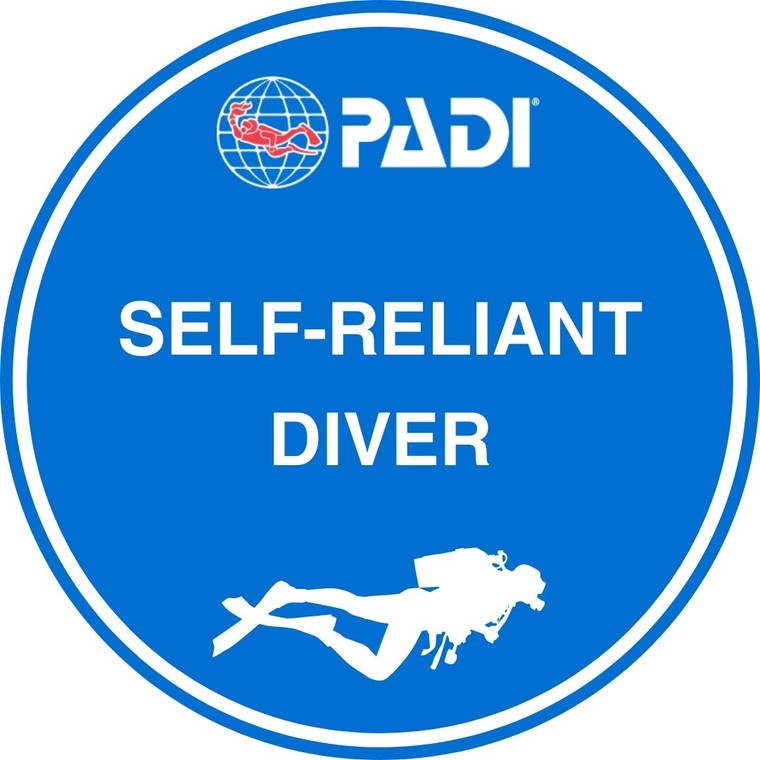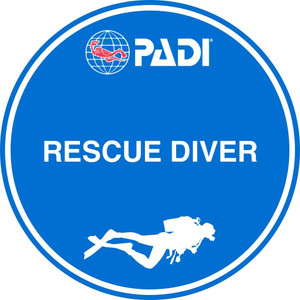
Self-reliant diving is an adventure activity that is not for everyone but does have its place. With proper training, equipment and an understanding and acceptance of the risks involved in independent diving, an experience diver can responsibly engage in dives without a buddy. Regardless of your future diving intensions, by completing the PADI Self-Reliant Diver Specialty, you'll strengthen your skills and confidence when diving alone, in a buddy pair or as part of a team.
What will I do?
You will have two days of intense self-reliant diver training to complete. In our fully equipped multi-media classrooms, you will learn how to plan a dive properly using air consumption rate calculations as well as how to manage dive emergencies independently.
You will then put into practice what you learn in a combination of skills during three open water training dives at a local dive site.
During your programme you will:
- Perform an air consumption rate swim to gather information for later calculation.
- Switch to a redundant air supply system during simulated emergency situations.
- Swim without a mask.
- Navigate to various points, including your exit.
- Use a DSMB.
How do I get started?
Just pick your dates if you can and pay your £125 deposit. There are no manuals, so you don’t have to worry about any home study before this course. Don’t worry if you can’t commit to a date straight away as there are plenty scheduled throughout the year.
How long will it take?
The PADI Self-Reliant Diver Specialty takes place over one weekend. Starting on a Saturday at 9am, you will review the theory sections from the PADI Self-Reliant Diver programme with your PADI Instructor. You will also complete a skills assessment in our onsite training pool.
The Sunday will cover all the practical sessions during three open water training dives.
What will I need?
The PADI Self-Reliant Diver Specialty is open to all divers who hold the PADI Advanced Open Water Diver certification or equivalent and have logged at least 100 dives. You need to be confident with navigation and the use of a DSMB, so may want to consider doing the PADI Underwater Navigator Specialty and PADI Delayed Surface Marker Buoy Specialty first.
Once you have booked onto your PADI Self-Reliant Diver Specialty you will receive your PADI DSMB Diver manual to start you on your way. You will need your own slate and pencil, a DSMB and redundant surface signalling device, as well as a primary and backup dive computer. All of these can be purchased from our shop at the start of your course if you do not already have them.
You will need to fill out a self-certification medical statement. If you have any medical conditions that you think may prevent you from scuba diving, please feel free to contact us and we will try to be of assistance.
All the PADI materials and standard scuba equipment needed to complete the programme are included in the cost. You will need to pay for your entry to the open water dive site and any required air fills while away from the centre. This is approximately £30 a day.
Where can I go from here?
Once you have completed your PADI Self-Reliant Specialty, you may want to think about completing the PADI Sidemount Diver Specialty, which offers a simple solution to gas redundancy. It may also have sparked your interest in more technical diving. The PADI Tec 40 course will allow you to develop your redundancy techniques even further and use some of your self-reliant skills when diving as part of a tec team.
Once you have completed five PADI specialties, the PADI Rescue Diver course and have 50 logged dives you hold all the prerequisites for the PADI Master Scuba Diver certification. This is the highest non-professional rating in the PADI system of diver education.
Here at Aquasport all our Instructors hold this level of recreational certification. We recommend that every diver takes this route regardless of their further ambitions as we see it as a commitment to education and a real achievement.





